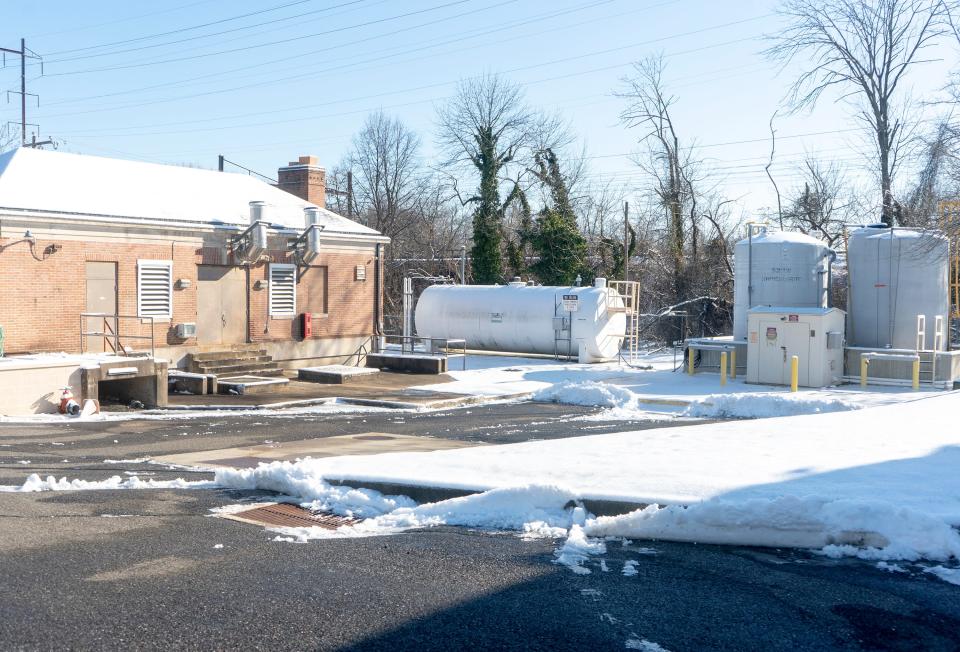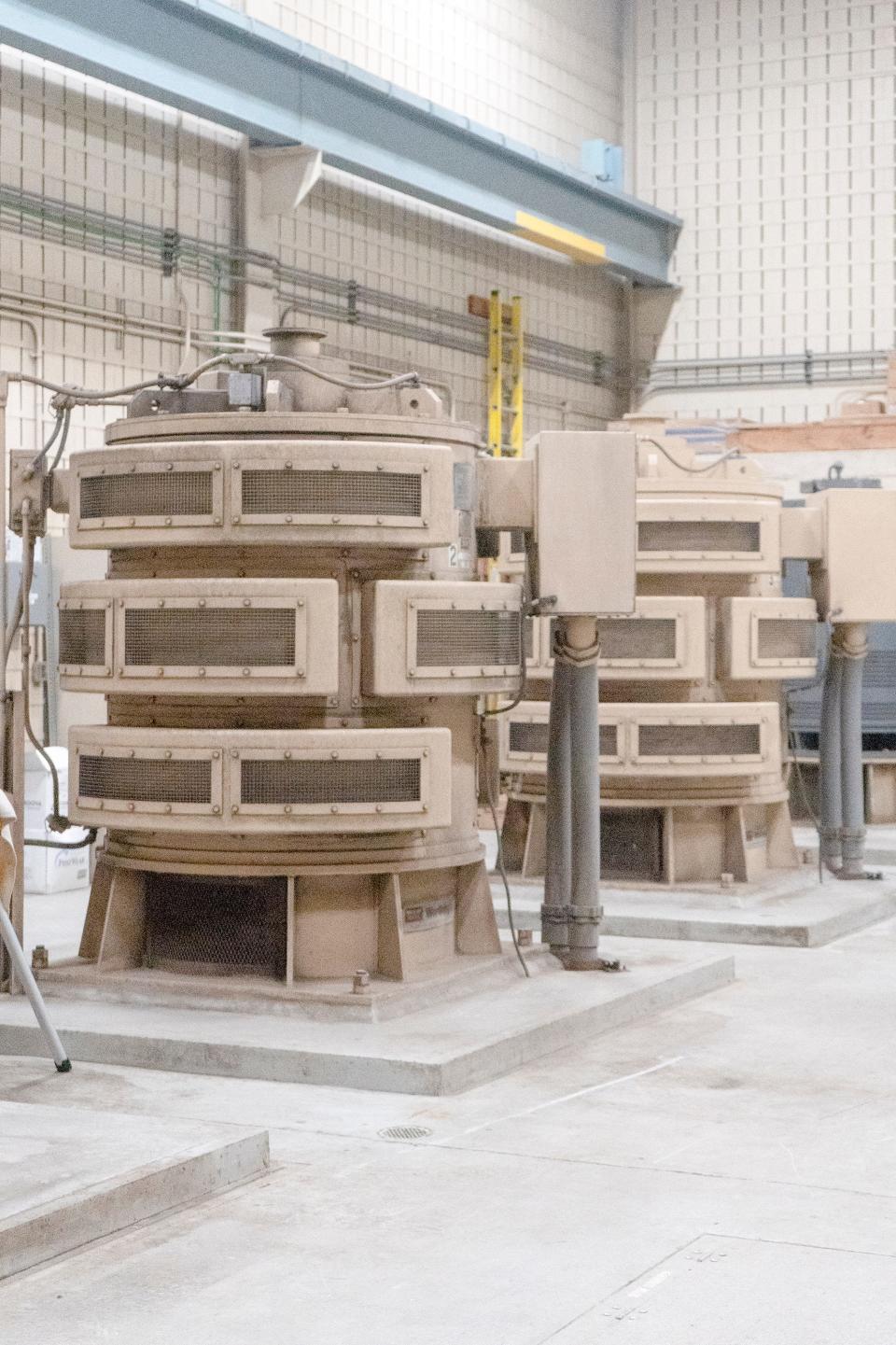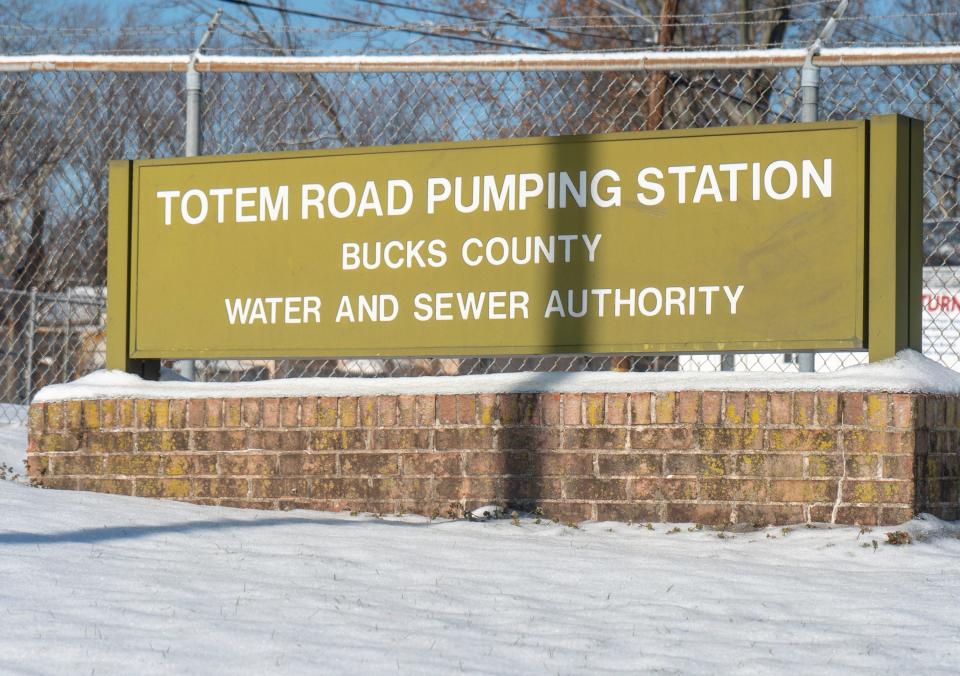Development in these 13 Bucks County towns could stop if costly sewer repairs aren't made
Thirteen municipalities in Bucks County have been warned:
Let the Bucks County Water and Sewer Authority know the status of your development projects and corrective plans for sewer infrastructure repairs or face a potential moratorium that would halt construction on homes and businesses in your community.
Repairing the pipes could cost the municipalities hundreds of thousands to millions of dollars. But if they don’t, they may be flushing new economic growth down those leaky drains. Dozens of development projects, many of which these towns count on to drive tax revenue and that were started after the pandemic eased, could be delayed or canceled.
The letter was sent to the BCWSA's retail customers where the BCWSA owns and operates that municipality's sewer system ― Bensalem, Langhorne and Middletown ― and to the following wholesale customers who own their own sewer pipes that connect to the BCWSA ― Bristol Township, Falls, Hulmeville, Langhorne Manor, Lower Makefield, Lower Southampton, Newtown Borough and Township, Northampton and Penndel.

How old sewer systems cause problems in Bucks County
During heavy storms, rain water seeps into cracked and broken sewer lines. The pipes connect to the BCWSA’s Neshaminy Interceptor, a large sewer main that takes sewage from Bucks County to a Philadelphia treatment facility. When there is a major, multi-day storm, the interceptor, which is due for a $60 million upgrade to increase capactiy, becomes filled with storm water that's taking up much of its sewage capacity.
And the sewage in a broken pipe can seep into the groundwater, contaminating wells, creeks and streams.
A BCWSA chart shows that during a four-day storm in October 2022, several municipalities released 50% more water than normal to the Neshaminy Interceptor.
"Groundwater infiltrates pipes through cracks, leaky joints and deteriorated manholes. This inflow of groundwater can overload the wastewater system and potentially cause sewage overflows to creeks, backups and impaired operations," the BCWSA noted.
BCWSA Executive Director Benjamin Jones said that there are increased costs for having to treat all this extra water that enters the wastewater treatment system.
Warnings sent to Bucks County towns
The BCWSA sent out the warnings Friday to the boroughs and townships it serves that did not fully respond to a July 18 request for information on developments and how they were implementing a corrective action plan (CAP) to fix their aging sewer pipes.
In copies of the Friday letters obtained by the Bucks County Courier Times, BCWSA Chairman John Cordisco writes that back in 2012, the Neshaminy Interceptor was "placed in a projected hydraulic overload condition by the DEP (Pennsylvania Department of Environmental Protection)."
The BCWSA allocates capacity into the Neshaminy Interceptor through equivalent dwelling units (EDUs). A home that uses 250 gallons of water a day is considered an EDU. But new businesses need to receive sewer capacity based on these EDUs as well. For example, a new nursing home with many residents would need to be allocated more EDUs than a new supermarket which would have many shoppers but far less water usage.
Since the pandemic has subsided, developers are again requesting EDUs, or space in the sewer system, as they ramp up housing and commercial projects.
Back in 2010, the BCWSA began requesting information on the number of EDUs it must allocate from the municipalities. But some of the information listed is outdated. EDUs were applied for but developers did not complete a project. The authority needs accurate information on development as it calculates flows into the Interceptor, especially during flooding storms.

More: Bucks County Water and Sewer Authority receives A+ bond rating as it prepares for major repairs
The letter states that "moving forward," compliance with a Supplemental Agreement that was executed by the municipalities with the BCWSA will require "submission of Corrective Action Plan (CAP) updates on I&I (inflow and infiltration) removal process." These will be required "prior to a project receiving a certification of capacity and planning approval by DEP."
The authority will assume that the municipalities which did not respond to the July letter have no projected connections beyond those already shown on the Neshaminy Interceptor Connection Management Plan (NICMP). "Any other projects going forward that are not already in one of the "released columns of the NICMP will not be approved for connection until all required items for the municipal customer (of the BCWSA) are satisfied," the letter states.
Furthermore, all miscellaneous EDU requested will be removed from the NICMP unless a project was named for their use. "An allotment of miscellaneous EDUs will be granted to each tributary municipality based on that municipality's average flow and compliance with peak exceedance limits."

Would Aqua deal have helped?
Two years ago, Aqua Pennsylvania offered to buy the BCSWA’s sewer system for $1.1 billion, but the county, which would have received the funds, voted the proposal down because residents protested that selling the sewer system to a private company beholding to its stockholders would raise their sewer rates. As part of the deal, Aqua offered to fix some municipal sewer lines.
Now the municipalities must pay for this work on their own.
Three of the largest municipalities that received the letter each have many developments in the works.
More: Bucks County Commissioners: We don't support $1.1B sale of BCWSA sewer system to private Aqua
More: With sale off table, Bucks County Water and Sewer Authority preps for $210M in repairs, rate hikes
Lower Makefield, Northampton and Newtown Township will receive only 3, 8 and 7 miscellaneous EDUs respectively, with Newtown Township will share its seven with Newtown Borough, according to the letter it received. The managers for the three townships could not be reached for comment Tuesday afternoon.
On Wednesday, Northampton Manager Robert Pellegrino said in an email that the township has been providing periodic updates to its Connection Management Plan for many years in coordination with its Municipal Authority and responded to the BCWSA July request promptly. He is asking for more information on what is now needed.
Pennsylvania DEP response
The DEP commented late Wednesday that the Bucks County Water and Sewer Authority (BCWSA) and the municipalities are required to plan ahead and report future connections to the Neshaminy Interceptor to the DEP. BCWSA has managed connections to the Neshaminy Interceptor since 2014. It noted that the connector should be transporting only sewage, not storm water infiltration and inflow (I&I).
"As it stands currently, BCWSA needs to make a determination about whether or not the Neshaminy Interceptor has sufficient capacity remaining to accommodate the projected new flow. There will be increased attention to the municipalities’ performance with sewer maintenance work (also called “I&I abatement”), and to the actual metered flow, particularly the rate of flow during critical conditions when the interceptor is flowing full," the DEP stated.
This article originally appeared on Bucks County Courier Times: Bucks County Water and Sewer Authority warns of development halt

